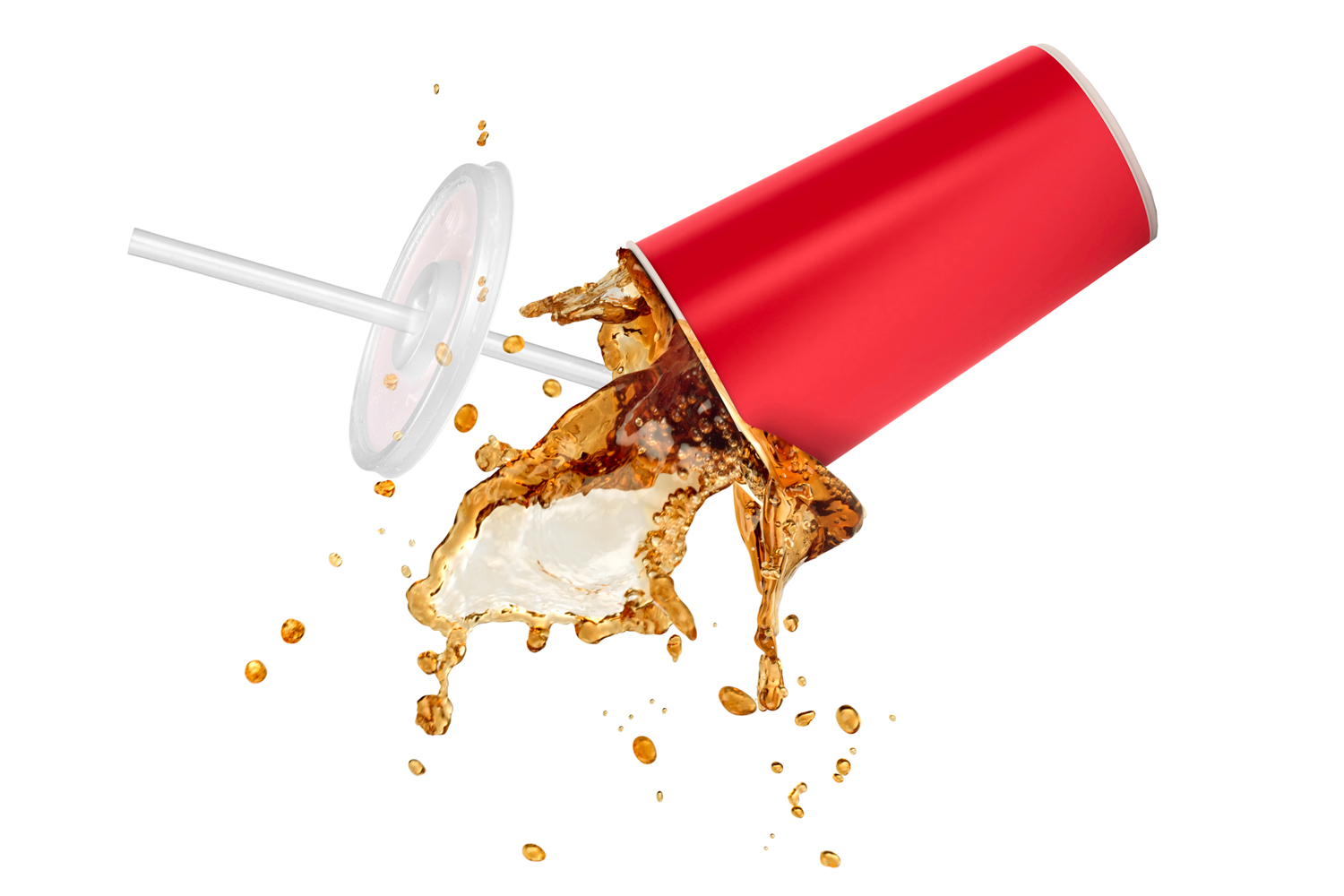THERE IS GOOD REASON to break up with soda. Drinking two or more sugar-sweetened soft drinks daily may increase your risk of dying from certain cancers, according to a study published October 2022 in Cancer Epidemiology, Biomarkers & Prevention. (This journal is published by the American Association for Cancer Research, which also publishes Cancer Today.)
The study followed nearly 935,000 adults for up to 34 years. The data showed drinking two or more sugar-sweetened beverages daily was associated with a 5% increased risk of dying from a weight-related cancer compared with never drinking them.
The study largely attributed the increased risk to the higher body mass index (BMI) of the participants who regularly drank these beverages. “There is convincing evidence that sugar-sweetened beverages promote excess weight gain and obesity,” says Marji McCullough, lead study author and a nutritional epidemiologist at the American Cancer Society. According to the National Cancer Institute, at least 13 cancers have been linked to excess body fat, including postmenopausal breast cancer, cancers of the digestive tract, and ovarian, liver, kidney and pancreatic cancers. Sweetened beverage drinkers also had a higher risk of death from colorectal and kidney cancer, regardless of their BMI, according to the study.
“The concentrated amount of sugar in these beverages rapidly raises blood sugar, prompting increased secretion of insulin, and that could also play a role,” says Karen Collins, nutrition adviser for the American Institute for Cancer Research. “Research shows that high insulin levels trigger pathways that promote cell growth.”
Watch out for drinks with surprisingly high sugar contents.
American Institute for Cancer Research nutrition adviser Karen Collins says, besides soda, watch for these other drinks with surprisingly high amounts of sugar:
- Bottled iced tea or pod-brewed sweet tea
- Coffee drinks that are bottled or served with flavored syrups
- Lemonade
- Sports or energy drinks
- Smoothies from juice or smoothie bars
- Fruit drinks, which often contain some fruit juice but are mostly sugar-sweetened water
Additionally, among people with obesity, frequently drinking sugar-sweetened beverages can increase inflammation, according to Collins. “Chronic inflammation can also promote cancer growth, so it makes sense for those who are overweight to be extra attentive to limiting sugar-sweetened drinks,” she says.
Tempt your taste buds with less intense sweet flavors.
When cutting back on sugar-sweetened beverages, you may miss their taste. “As you get used to less intense sweet flavors, water becomes more enjoyable,” says Karen Collins, nutrition adviser for the American Institute for Cancer Research. She suggests these tips for easing the transition:
- Add a squeeze of orange, lemon or lime juice to plain seltzer.
- Try sparkling waters and seltzers flavored with fruit, ginger or coconut essence.
- Sample hot- or cold-brewed herbal teas. Many have a naturally mild sweet taste without sweeteners.
Cancer prevention guidelines stress limiting sugar-sweetened drinks and foods high in added sugars. Collins encourages anyone undergoing cancer treatment to speak to an oncology dietitian to help create workable nutrition strategies.
Cancer Today magazine is free to cancer patients, survivors and caregivers who live in the U.S. Subscribe here to receive four issues per year.





